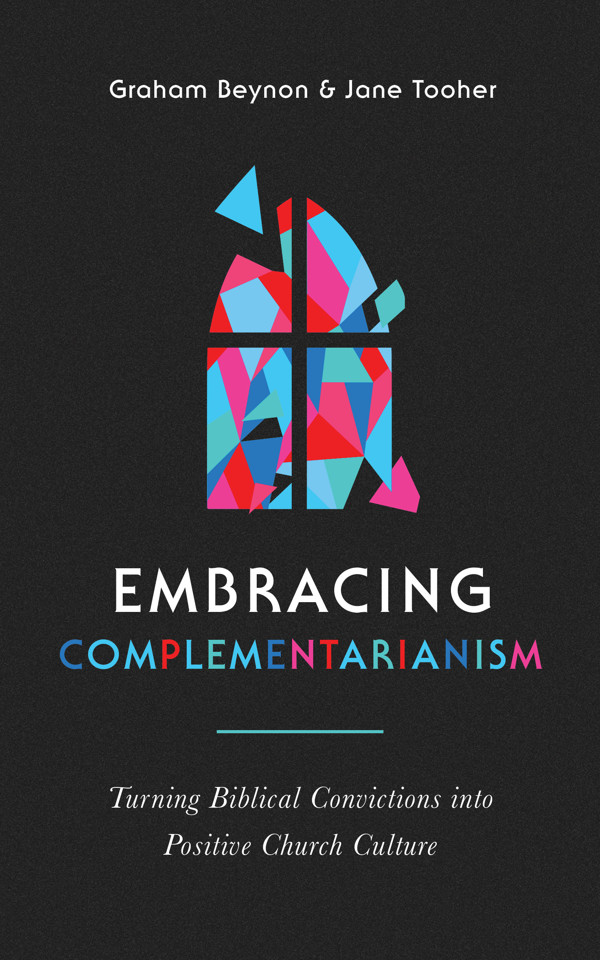Review: Embracing Complementarianism

I’ve always felt a bit uneasy about the labels complementarianism and egalitarianism. So much debate around these terms feels fraught. It often feels that there is a subtle contempt for the other side lying just below the service. And whenever one of these labels is dropped in a conversation, it’s hard not to feel at least a little nervous.
At the time of writing this, I don’t particularly ascribe to one view or the other. I’ve often claimed to be agnostic on the matter. If I do find myself in a discussion, I’m just as likely to argue the case for the opposite side to whatever seems the dominant view. Am I a soft complementarian? Or a soft egalitarian? I don’t really know. If there was a spectrum, I’m most comfortable somewhere in the middle. So what did I make of this book presenting a case for complementarian?
The first four chapters of the book provided a solid overview of gender, creation, and the complexity at attempting to understand the Bible’s teaching on the subject. It does a good job at outlaying the similarities that are true for both males and females, and I found very little to dispute.
The book marches along a very familiar path: there is a uniqueness of each gender in expressing godliness, but it is very difficult (and perhaps unwise) to attempt to pin it down to anything in particular. That’s not a critique – it’s probably right. But it does feel tiresome, book after book, to hear people affirm there is a difference, without being able to identify what that difference is. I confess that this frustration is perhaps what I find most compelling about the egalitarian position. If we can’t clearly articulate a difference, then it feels difficult (to me at least) to hold a strong conviction that we are altogether different.
Chapter 5 is titled ‘The Goodness of Men Leading in Ministry’. I was keen to reach this chapter, as it finally promised to present something of a contrast between the genders. So what was the answer? Really, it was much like the rest of the book: very thoughtful; very careful; and less than convicting. Again, I say that as a compliment more so than a critique. I think it does a great job at outlining the various positions within complementarianism, and the ways people have sought to understand and apply the Bible’s teaching. It covers (briefly) the key texts of 1 Timothy 2, 1 Corinthians 11 & 14. But it’s strength is also it’s weakness.
Are women allowed to be elders? What about deacons? What constitutes teaching with authority? I appreciate that the chapter confesses that complementarians differ greatly on the answers. I think it is very commendable that it doesn’t attempt to provide a single, narrow lens with which to condemn all other possibilities. Graham and Jane certainly articulate their personal convictions. But I felt like they did so with great humility. Well done!
But this, I think, highlights the problem with the book. In asking us to ’embrace complementarianism’, it fails to truly articulate a single compelling vision for what we are to embrace. That may well be the best we could hope for. After all, we have limited knowledge, and only a handful of key texts. I was left feeling that this chapter would give you further confidence if you already held to the authors perspective. But as someone more on the fence, it didn’t quite hit the spot.
For me, I think the strongest complementarian arguments probably lie in Paul’s arguments from creation. These arguments aren’t intuitive (at least to me), and I find it difficult to understand exactly what Paul is and is not trying to say. The book touches on them, but it feels a little like Paul saying “because of the angels”. It sounds like a mic drop moment, but I don’t really know what it means.
The final two chapters of the book are titled ‘Coming in to land’ and ‘Putting it into practice’. I should commend the authors here. They readily acknowledge the complexity of the issues at hand, and, rather than providing a blanket checklist of do’s and don’ts, they encourage readers to reflect on their biblical convictions. There is a generous humility here in their approach to not provide a one-size-fits-all solution. Several brief appendix chapters explore some of their own thinking on application, presented gently as an example
Why I read it
I’ll be honest: I probably wouldn’t have personally picked up a copy of this book myself. I was gifted it. It’s been in my yet-to-read pile for over a year. It caught my eye as I was thinking through matters of gender, and realised that it might be a helpful contribution to read on a very nuanced topic within gender more broadly.
What I liked
I appreciated how much I could readily agree with in the book. I appreciated the gentle and humble tone echoed throughout. This wasn’t preachy. It well recognised that there is diversity of opinion on these matters (and sometimes even between the two authors).
What I didn’t
Perhaps my most significant gripe has to do with expectation. For a book called Embracing Complementarianism, it felt rather underwhelming at times in compelling me to embrace it’s vision. I think it did a reasonable job articulating the views of the authors. But if you weren’t convinced already, I doubt this book would change much for you.
Who should read it
If you’re looking to read a book on complementarianism, this is a solid contribution. Of course, that’s a fairly niche audience.
Embracing Complementarianism
I've always felt a bit uneasy about the labels complementarianism and egalitarianism. So much debate around these terms feels fraught. It often feels that there is a subtle contempt for the other ...
